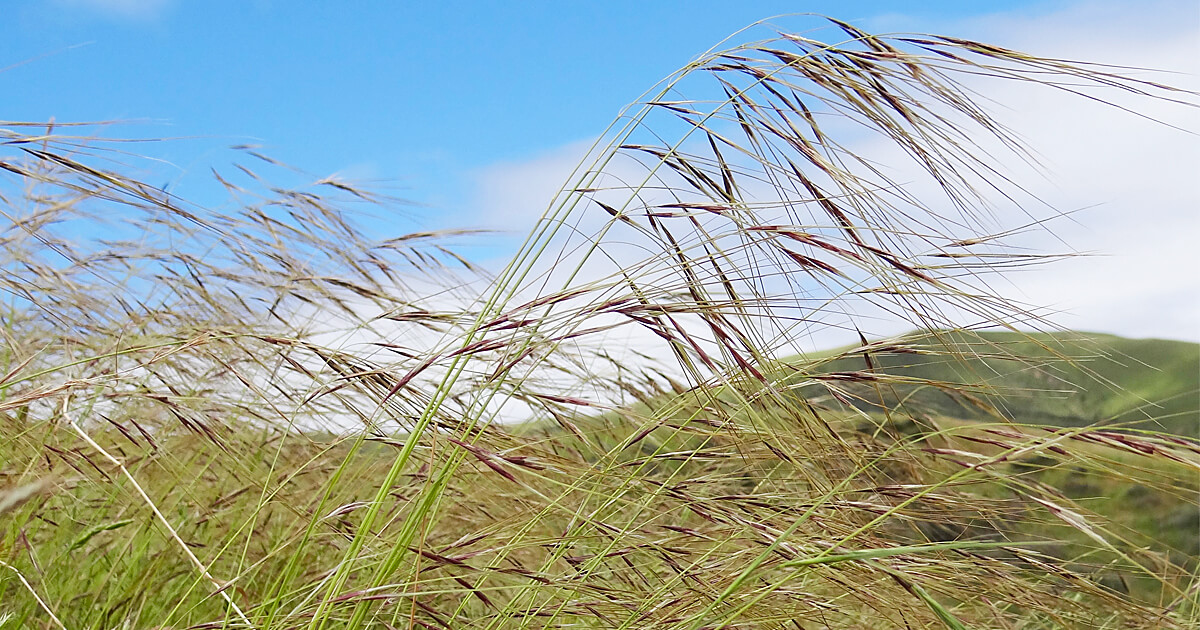
Chilean Needle grass presents a significant threat to sheep and beef farmers. Photo: Otago Regional Council.
Waikato Regional Council is sounding alarm bells about grass so invasive it could put half a million hectares of sheep and beef farming at risk.
Chilean Needle grass is considered a big enough threat in Canterbury that a researcher uses dogs trained to track it down.
Rural News reported a successful proof-of-concept season has shown trained dogs can reliably pinpoint the plants.
Regional Council Pest Plants Team Leader Darion Embling says the grass is not found in the Waikato.
The council wants to keep it that way – but Chilean needle grass seeds can easily hitch a ride from other regions by screwing into clothing and stock pelts, skin and flesh, on equipment and machinery, and even in gravel or fodder.
The needle-like seeds, which are about 7 centimetres long, can penetrate skin and the flesh of animals.
“This is really nasty stuff and it is found in the North Island in the Hawke’s Bay and in the South Island in Marlborough and Canterbury,” Embling said.
“We really need farmers to be vigilant about inadvertently bringing Chilean needlegrass into the region, so that means understanding the likely pathways of spread and always ensuring biosecurity starts at any farm gate.”
Chilean needle grass does well in drought and will displace other pasture grasses.
“If gets caught in sheep’s wool it’s next to impossible to remove, in the eye it can cause blindness, and if eaten by stock it can cause mouth abscesses or internal injuries,” says Embling.
“It’s also very hard to eradicate as it seeds prolifically and builds up large seed reserves in the soil.”
Needle grass is a tussock like grass up to a metre. Leaves are up to 5mm wide and up to 30 centimetres long and bright-green in spring and summer.








